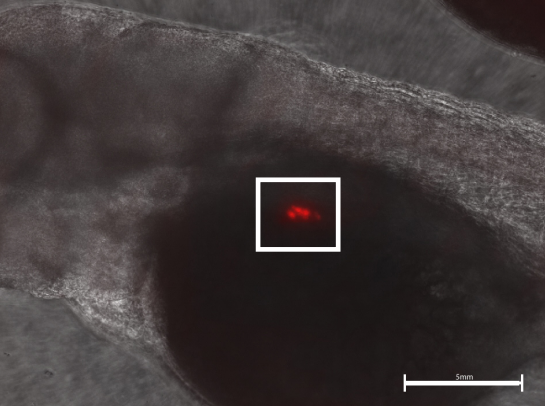The Effect of Ethanol Concentration on Beta-Cell Development in Zebrafish
(1) University of Massachusetts Medical School, Worcester, Massachusetts; Fuller Science Center, Bancroft School Worcester, Massachusetts, (2) Fuller Science Center, Bancroft School Worcester, Massachusetts
* These authors made equal contributions
https://doi.org/10.59720/13-009
Type 1 diabetes is a disorder in which pancreatic β-cells do not provide sufficient insulin to moderate blood sugar levels. Fetal alcohol syndrome is a condition caused by alcohol consumption during fetal development that results in a host of developmental defects. The purpose of this study is to assess the effect of ethanol (EtOH) on β-cell development in developing embryos. Zebrafish embryos were exposed to concentrations of EtOH diluted in embryo medium. Six experimental groups were created by exposing groups of 50 embryos to 0.10%, 0.25%, 0.75%, 1.00%, and 1.50% EtOH, with 0% EtOH serving as a control. The embryos were then rated based on the amount of β-cell degradation in the embryonic pancreases on a scale of zero to four, ranging from no β-cell damage to extreme β-cell damage. We show that higher concentrations of EtOH caused increased damage to β-cells, with average grades of the embryonic β-cells increasing with EtOH concentration: average grades for 0%, 0.10%, 0.25 %, 0.50%, 0.75 %, 1.0 %, and 1.50% EtOH exposures were 0.71, 0.61, 0.55, 1.0, 0.82, 2.1, and 4.0 respectively. Therefore, exposure to increasing amounts of EtOH during pancreatic development may increase the severity of primary β-cell degradation. This study suggests that if a woman were to drink alcohol during the first trimester of her pregnancy, her child would be at a higher risk of developing type 1 diabetes.
This article has been tagged with: